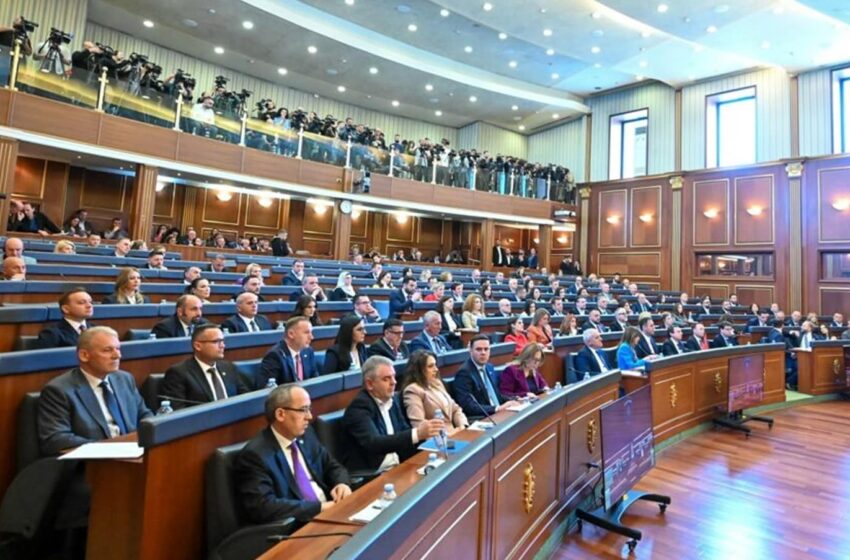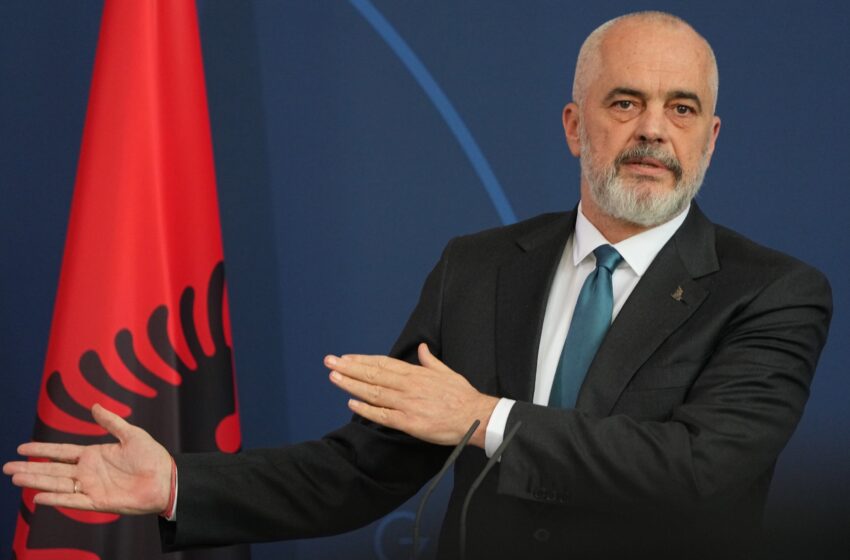DP accuses Socialists of pressuring public sector workers amid voting dispute over diaspora

Eno Bozdo, a Democratic Party (DP) representative accused the Socialist Party (PS) of pressuring public sector workers to secure votes from family members and friends in the diaspora. His claims come amid a critical political standoff over the rules for registering emigrants to vote in Albania’s spring 2024 elections.
Why is this important: With hundreds of thousands of potential diaspora voters at stake, the unresolved dispute over registration rules could delay crucial election reforms. The DP’s accusations against PS add tension to an already heated debate, reflecting the high political stakes on both sides.
What was said: Bozdo, speaking from DP headquarters, presented a form he claims is being distributed to public employees in Berat and other areas. According to him, these employees are being pressured to gather at least ten secure votes from family members or friends abroad—or risk losing their jobs.
“PS officials and public agency directors are forcing public sector employees to fill out this form,” Bozdo said. “They are tasked with securing ten votes from emigrants, or they’ll lose their positions. These so-called ‘volunteers,’ paid with public money, are nothing more than patronage operatives tasked with surveillance, manipulation, and vote-buying.”
Context: The accusations come at a time when the Central Election Commission’s (CEC) Regulatory Commission is deadlocked for the second consecutive day over rules for diaspora voting. The PS insists that only emigrants with valid, unexpired IDs be allowed to register and participate in the elections, arguing that it ensures the legitimacy of the voting process.
The DP, however, argues that this requirement could disenfranchise many emigrants who may lack updated documents, potentially limiting participation. The opposition claims that such strict conditions threaten to prevent a large portion of Albanians abroad from exercising their voting rights.
What’s next: The CEC session has been marked by tense exchanges between the two parties, with Chairwoman Ilirjana Nano ultimately postponing further discussions in hopes of finding a compromise. The PS has also mobilized its party structures and members to actively canvas family members and friends abroad, providing lists of potential supporters as part of its election strategy.
What’s this about: With diaspora voters playing a potentially decisive role, the stakes remain high. Both parties are scrambling to gain influence in the diaspora, setting the stage for an intense election season. However, SP has devoted more time, energy and resources to expanding its structures into the diaspora. It has been working to organize its supporters in the diaspora since 2013. DP on the other hand is at a clear disadvantage when it comes to mobilizing this huge pool of potential votes. Its fragmentation and the serious legal troubles of its leader Sali Berisha have meant that the DP has yet to reach out to the diaspora in any meaningful, organized sense.


